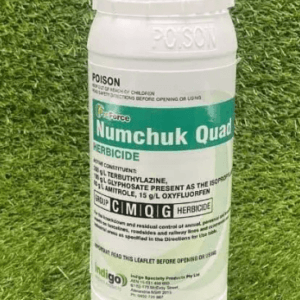Creating an eco-friendly garden is not only beneficial for the environment but also a fulfilling way to contribute to a sustainable future. As a gardener, you have the power to make choices that positively impact the planet. Here, we present ten sustainable garden nursery products that can help you cultivate a beautiful, thriving garden while reducing your ecological footprint.
The Importance of Sustainable Gardening
Sustainable gardening means using eco-friendly practices and products that help promote biodiversity, conserve resources, and reduce waste. When you choose sustainable products, you’re not just making your garden look amazing – you’re also doing a huge favor for the environment. So, let’s dive into the top ten sustainable garden nursery products that can make your garden greener and more beautiful!
Top 10 Sustainable Garden Nursery Products
1. Organic Lawn and Turf Care Products
Keep your lawn lush and green without harming the environment. Organic lawn and turf care products are made from natural ingredients that nourish your soil and grass, promoting healthy growth without the use of harmful chemicals.
2. Compostable Plant Pots
Say goodbye to plastic pots and switch to compostable plant pots. These pots break down naturally in the soil, providing nutrients to your plants and reducing landfill waste.
3. High-Quality Fertilisers
High-quality fertilisers are specially formulated to enrich your soil without causing pollution. These fertilisers support sustainable farming practices and enhance soil health.
4. Eco-friendly Pest Control Solutions
Protect your plants from pests without using toxic chemicals. Eco-friendly pest control products use ingredients like neem oil and diatomaceous earth to keep your garden safe and healthy.
5. Rainwater Harvesting Systems
Conserve water by installing a rainwater harvesting system. These systems collect and store rainwater for use in your garden, reducing your reliance on municipal water supplies.
6. Biodegradable Mulch
Mulching is essential for retaining soil moisture and suppressing weeds. Biodegradable mulch decomposes over time, adding organic matter to your soil and reducing waste.
7. Native Plant Seeds
Planting native species supports local ecosystems and promotes biodiversity. A range of native plant seeds is perfect for creating a garden that thrives in your region’s climate and conditions.
8. Solar-Powered Garden
Lights Illuminate your garden sustainably with solar-powered lights. These lights charge during the day and provide beautiful, eco-friendly lighting at night without increasing your electricity bill.
9. Recycled Garden Furniture
Choose garden furniture made from recycled materials to reduce your environmental impact. There are options including benches, tables, and chairs that are both stylish and sustainable.
10. Professional-Grade Garden
Tools Invest in high-quality, durable garden tools that last longer and reduce the need for frequent replacements. Professional-grade tools are designed for commercial landscaping projects and are built to withstand heavy use.
Benefits of Using Sustainable Garden Products
Using sustainable garden products offers numerous benefits:
Environmental Protection
Sustainable garden products are your garden’s best friends. They help reduce pollution and conserve natural resources, protecting our ecosystems and promoting a healthier planet.
Healthier Soil
Good soil is the heart of a thriving garden. Organic and eco-friendly products improve soil structure, making it more fertile and better at retaining water and nutrients. This means your plants will grow stronger and healthier.
Reduced Chemical Usage
Ditch those harsh chemicals! Sustainable alternatives like natural fertilisers and pest control solutions are safer for you, your pets, and the wildlife visiting your garden. Plus, they help keep the environment clean.
Water Conservation
Water is precious, especially here in Australia. Sustainable products like rainwater harvesting systems and biodegradable mulch help conserve water, ensuring your garden stays green even during dry spells.
Enhanced Biodiversity
By planting native species and using organic methods, you can create a haven for local wildlife. Bees, butterflies, and birds will flock to your garden, helping to maintain a balanced and vibrant ecosystem.
Cost Savings
While sustainable products might seem a bit pricier upfront, they save you money in the long run. Durable garden tools, compostable pots, and efficient watering systems mean fewer replacements and lower maintenance costs.
Improved Plant Health
Your plants will thank you for going green. Organic products provide essential nutrients without the harsh chemicals, leading to healthier, more vibrant plants that can better resist pests and diseases.
Reduced Waste
Embrace a zero-waste lifestyle by using compostable and biodegradable products. They break down naturally, adding valuable organic matter to your soil and reducing landfill waste.
Energy Efficiency
Save on your electricity bills with energy-efficient products like solar-powered garden lights. They harness the sun’s energy to keep your garden lit at night, cutting down on your carbon footprint.
Aesthetic Appeal
Sustainable gardens are not only eco-friendly but also beautiful. Imagine a garden filled with thriving plants, native flowers, and stylish recycled garden furniture. It’s a win-win for you and the environment!
At Garden Nursery Products, there is a dedication to providing eco-friendly, professional-grade garden products that help create a sustainable garden. Whether you are a home gardener or a commercial landscaper, these products are designed to meet your needs while protecting the environment.
If you live in or around Queensland, contact us to learn more about our sustainable garden products and how we can help you create an eco-friendly garden.
FAQ
Q: What is the most sustainable plant?
Native plants are considered the most sustainable because they are adapted to the local climate and soil, requiring less water, fertiliser, and pesticides.
Q: Why is planting sustainable?
Planting sustainably conserves resources, promotes biodiversity, improves soil health, and reduces pollution, creating a balanced and healthy ecosystem.
Q: Is using organic fertiliser sustainable?
Yes, using organic fertiliser is sustainable as it enriches the soil naturally, supports beneficial microorganisms, and reduces the risk of chemical runoff, benefiting both plants and the environment.


